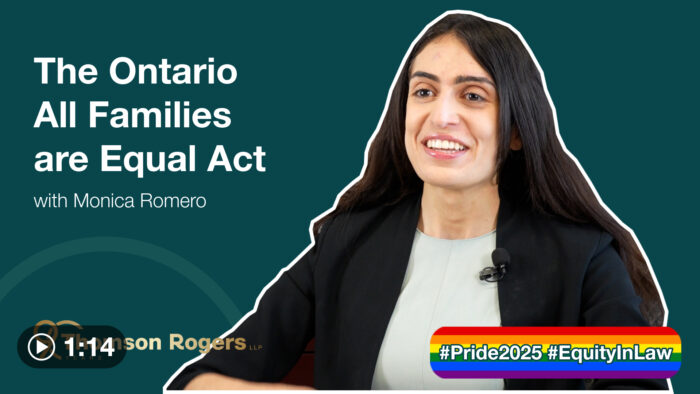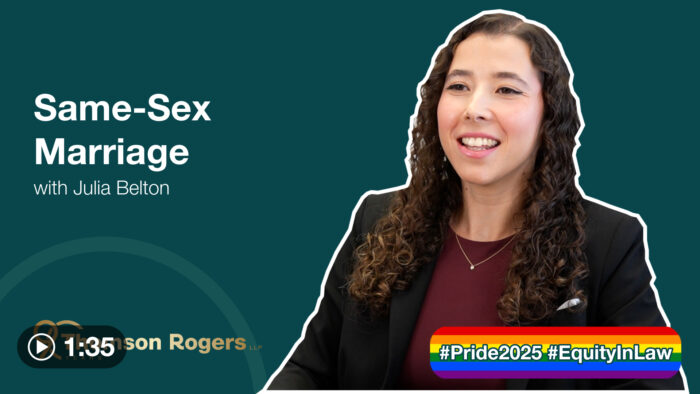OTLA Summary of Hoang FSCO Appeal Decision
Author(s): Robert M. Ben*
June 11, 2013
Hoang v. Personal Insurance Company: An Insurer Must Remain Open to Additional Information as it Becomes Available
What does it mean for an accident benefits insurer to “remain open to additional information as it comes forward” when considering an injured person’s entitlement? What about information that comes to light after the insurer has denied benefits on the strength of its insurer’s examination? Is the insurer required to meet with the injured person’s lawyer to discuss the injured person’s ongoing accident-related problems? Is the insurer required to review a DVD video compiling statements of the rehabilitation team’s concern about the effect of denied rehabilitation benefits? A recent appeal decision from the Financial Services Commission of Ontario (“FSCO”) in the case of Hoang v. Personal Insurance Company (Appeal P11-00025) is instructive.
Six-year-old Christopher was struck by a car after he chased his windblown baseball cap into an intersection. He suffered a serious frontal lobe brain injury and spent months in hospital rehabilitating. Upon his discharge home, and as he progressed through elementary school, Christopher was followed and supported by a skilled multi-disciplinary rehabilitation team. He continued to suffer from brain-injury related cognitive and behavioural deficits, including: difficulties with dual attention tasks such as listening and writing simultaneously; slowed mental processing; persistent behavioural difficulties with aggression and frustration; fatigue; and, anxiety. Although he was showing satisfactory scholastic functioning, he was considered, on assessment by an independent neurologist and paediatrician, to be at very high risk for emerging deficits in frontal lobe functioning during his adolescent years.
Although Christopher’s accident benefits insurer was paying benefits for much of his needed treatment, it refused to pay for tuition for a specialized private school or for the provision of rehabilitation support worker (“RSW”) services, both of which had been recommended by Christopher’s rehabilitation team. After a six-day arbitration hearing at FSCO, Arbitrator Ashby held that both the private school tuition and RSW services were reasonable and necessary and ordered the insurer to pay those benefits.
Further, the Arbitrator found that the insurer’s reliance on its own assessors in the face of overwhelmingly consistent opinions and reasoning of Christopher’s rehabilitation team, and others, amounted to an unreasonable disregard of the available information relating to the two rehabilitation benefits at issue. Moreover, the Arbitrator found that the insurer’s refusal to pay benefits given Christopher’s tender years, his catastrophic impairment, and the medical opinion that the claimed services were necessary for his progress, amounted to a stubborn refusal to pay a reasonable and necessary benefit. A punitive Special Award was ordered against the insurer.
The insurer appealed. Director’s Delegate Blackman upheld the Arbitration Order, save for the precise quantum of the Special Award, which was directed for determination on a separate hearing. The Delegate confirmed that when adjusting an accident benefits claim, an insurer has a responsibility to “carefully consider all of the available information, giving appropriate weight to that information in a fair and even-handed manner” as well as to “re-assess the validity of the claim as new information is received.”
The insurer failed to meet it responsibility in this regard. The insurer relied on an Insurer’s Medical Examination (“IME”) report prepared by its psychologist in denying the benefit. After the denial, Christopher’s legal counsel invited the adjuster and the IME psychologist to a meeting to discuss the denial and concerns that Christopher’s ability to control his classroom behaviour was slipping as his mental resources were increasingly being expended in meeting the more complex curriculum demands. An invitation was also extended for the adjuster and the IME psychologist to have full contact with any member of Christopher’s rehabilitation team concerning the recommended but denied treatment. Further, a DVD video was provided containing interviews with various members of Christopher’s rehabilitation team and family concerning the negative impact the denial of treatment was having and would have on Christopher.
On cross-examination at the arbitration hearing, the adjuster admitted that although he received the invitation he decided not to attend because his IME psychologist “had already rendered his opinion and had considered all medical advice or reports up to and including his opinion.” The adjuster admitted that he had received the DVD but decided not to review it. He admitted that, in retrospect, this was something that he should have reviewed given that he would want to weigh all available information, including information from people that were directly working with Christopher in his rehabilitation, when making a decision as to entitlement to benefits. The Delegate found that this conduct was “hardly consistent with the [insurer’s] submission that it remained open to additional information as it came forward” and on this basis upheld the Special Award.
The Hoang case confirms that accident benefits insurers cannot merely rely on the opinions of their IME assessors when denying a benefit. Even after a denial is made, the insurer has an obligation to re-assess the validity of the claim as new information is received. This new information may include, as in Christopher’s case, information available through meetings or interviews with the injured person’s legal counsel and/or members of his or her rehabilitation team. In light of this, query whether the adjuster can continue to maintain privilege over their files after the FSCO dispute resolution process is initiated.
Robert M. Ben advocated on behalf of Christopher at the arbitration and appeal hearings in this matter.
View PDF version: ABR Updater | Issue 11 | June 2013
Share this






